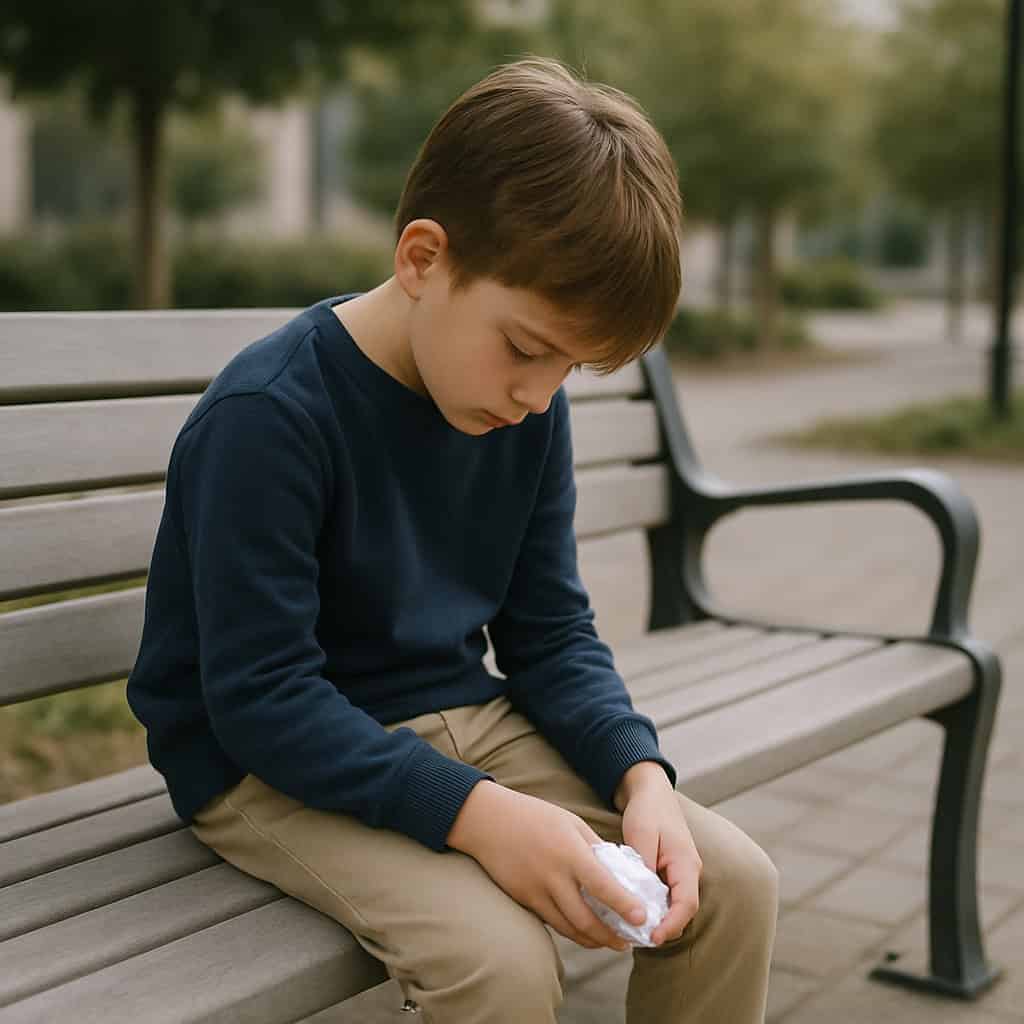16 Clear Warnings Your Child Needs More Support — Now
A sudden or ongoing decline in your child’s academic performance may be a red flag that they need additional support. Unlike the typical ups and downs most students experience, persistent struggles—such as missing assignments or slipping grades—can indicate deeper issues. This can look different depending on age, from difficulty learning basic skills in younger children to failing tests in teens.
Withdrawal from Friends and Activities

If your child suddenly pulls away from friends or loses interest in activities they once enjoyed, it could signal more than just changing preferences. While it’s normal for interests to shift as children grow, a consistent pattern of isolation or avoidance may point to emotional, social, or mental health struggles. Pay special attention if your child stops engaging with peers or hobbies for an extended period. Learn more at Child Mind Institute.
Persistent Sadness or Mood Swings

Ongoing sadness, irritability, or sudden mood swings can be strong indicators that your child needs more support. These emotional changes might manifest as frequent crying, anger outbursts, or becoming easily frustrated over minor issues. Such shifts often affect daily routines, making it hard for your child to concentrate in school or maintain healthy relationships with family and friends. If these symptoms persist, it’s important to take them seriously. More information can be found at the National Institute of Mental Health.
Sudden Changes in Eating or Sleeping Habits

Significant shifts in your child’s appetite or sleep—such as overeating, skipping meals, insomnia, or excessive sleeping—can signal underlying emotional or mental health challenges. While occasional changes are common, persistent or dramatic alterations may indicate deeper concerns that require attention. Monitor for patterns like ongoing fatigue, frequent nightmares, or a sudden lack of interest in food. For further guidance, visit the KidsHealth Mental Health Resources.
Frequent Physical Complaints Without Clear Cause

Recurring headaches, stomachaches, or other unexplained physical symptoms in children can often be a sign of underlying emotional distress. While occasional complaints are normal, ongoing or frequent physical issues without a clear medical explanation should be taken seriously. These complaints may be your child’s way of expressing anxiety, stress, or depression. It’s important to look beyond the physical symptoms and consider emotional factors. For more insights, visit the American Academy of Pediatrics.
Increased Irritability or Anger Outbursts

Heightened irritability or frequent anger outbursts may indicate that your child is dealing with hidden stressors or unmet emotional needs. For example, your child might lash out over small disagreements, show frustration with siblings, or become uncharacteristically defiant at home or school. These behaviors often surface when a child feels overwhelmed or unable to express what’s really troubling them. Monitoring these patterns is crucial for early intervention. For further reading, see the CDC’s guide to children’s mental health.
Avoidance of School or Other Responsibilities

If your child consistently avoids school, homework, or daily chores, it might signal deeper emotional or psychological struggles. While occasional resistance is typical, especially during stressful times, ongoing avoidance can indicate anxiety, depression, or feeling overwhelmed. Watch for frequent complaints about feeling sick on school days or refusing to complete assignments. Persistent patterns like these suggest your child may need extra help.
Excessive Worry or Anxiety

When a child experiences persistent or overwhelming worry about themselves, their family, or the future, it can signal underlying anxiety that needs attention. This may show up as restlessness, constant “what if” questions, perfectionism with schoolwork, or avoiding activities that make them nervous. Unlike typical worries, these feelings can interfere with daily functioning and cause significant distress. Recognizing these signs early can help prevent further challenges. For additional information, visit the Anxiety Canada resource on childhood anxiety.
Loss of Confidence or Self-Esteem

When a child frequently criticizes themselves, gives up at the first sign of difficulty, or talks about feeling “not good enough,” it may point to a loss of confidence or self-esteem. These behaviors can be subtle or pronounced, but both are important to notice. Persistent self-doubt or expressions of worthlessness are warning signs that your child may need more guidance and reassurance.
Difficulty Concentrating or Completing Tasks

Attention problems, frequent forgetfulness, or regularly failing to complete assignments can signal that a child is struggling with more than just typical distractions. While everyone loses focus occasionally, ongoing issues with concentration or task completion may indicate learning challenges, anxiety, or other underlying concerns. These struggles can impact school performance and daily life, making it important to distinguish between normal lapses and persistent patterns. For more insight, visit the Child Mind Institute’s guide on distractibility in children.
Regression to Younger Behaviors

When children revert to behaviors such as bedwetting, thumb-sucking, or frequent tantrums—especially after having outgrown them—it can be a response to stress, anxiety, or trauma. These regressions often signal that your child is feeling overwhelmed and may need extra support to cope with challenging emotions. Persistent or sudden returns to earlier behaviors should not be dismissed. For more information, visit HealthyChildren.org’s resource on regression.
Unexplained Fears or Phobias

The sudden development of intense, irrational fears or avoidance of specific places, people, or situations can be a sign your child is experiencing emotional distress. These fears may seem unrelated to any real danger and can interfere with daily routines, such as refusing to go to school or avoiding certain friends. Unlike typical childhood worries, persistent phobias often require additional support and understanding. Learn more about childhood fears and when to seek help at Anxiety UK.
Changes in Friendships or Social Circles

Frequent changes in friends, ongoing struggles to form or keep friendships, or suddenly being excluded from social groups can all signal deeper social or emotional difficulties. While evolving friendships are normal as children grow, constant shifts or isolation may reflect challenges such as bullying, low self-esteem, or social anxiety. Watch for signs like your child being left out of group activities or expressing loneliness. To better understand the significance of friendship changes, visit Raising Children Network.
Self-Harm or Talk of Self-Injury

If your child has visible injuries like cuts or burns, talks about self-harm, or expresses a desire to hurt themselves, these are critical warning signs that require immediate attention. Self-injury is often a way to cope with overwhelming emotions or distress and should never be ignored. Open, compassionate communication and prompt professional support are essential. If you notice these signs, seek help right away.
Risky or Defiant Behaviors

Engaging in risky or defiant behaviors—such as breaking rules, lying, stealing, or experimenting with dangerous activities—can be more than just testing limits. These actions might be a child’s way of coping with emotional pain, stress, or unmet needs. Persistent or escalating defiance often signals deeper issues that require compassionate intervention and support. Recognizing these behaviors early can help prevent more serious consequences.
Expressing Hopelessness or Thoughts of Giving Up

When a child makes statements like “Nothing will ever get better,” “I can’t do anything right,” or talks about wanting to give up, these are serious warning signs of emotional distress. Expressions of hopelessness, helplessness, or despair may indicate depression or a sense of being overwhelmed by life’s challenges. These feelings often require immediate attention and support from caring adults. For guidance on responding to such concerns, visit the 988 Suicide & Crisis Lifeline Youth Resources.
Conclusion

Recognizing these warning signs is essential in ensuring your child receives the support they need during challenging times. Proactive communication, attentive listening, and early intervention can make a profound difference in a child’s emotional and mental well-being. If you notice any of these signs, don’t hesitate to seek guidance from professionals or trusted resources. Taking action early can help your child thrive and prevent more serious issues.
.article-content-img img { width: 100% }




